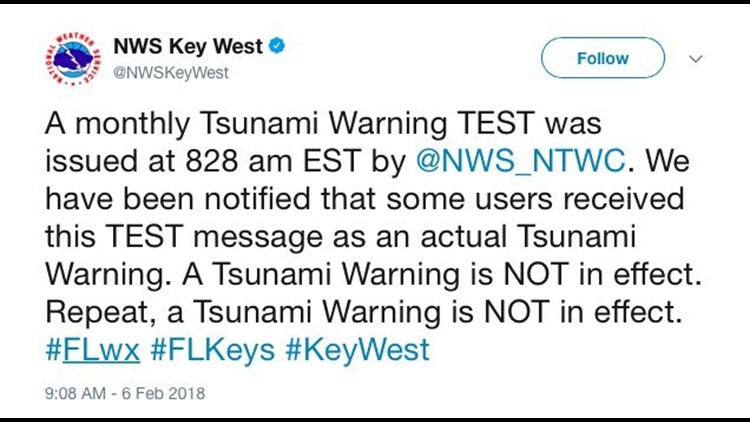People along the US East and Gulf Coasts received a startling “Tsunami Warning” message on their phones Tuesday, after a routine monthly test message was mistakenly pushed out by some weather apps as a real warning.
The National Weather Service sent the test message via the Emergency Alert System at around 8:30 a.m.
The message “was intended to only go to state warning points and certain other government agencies.” However, according to the Massachusetts Emergency Management Agency, “some news and weather services picked up the test message and posted it on their apps and via social media.”
The push alerts and urgent messages people received on their phones did not make it clear that the warning was a test.
AccuWeather, makers of one of the apps that sent the alert, pointed the finger at the National Weather Service in a press release after the incident on Tuesday, saying the NWS coded the test message incorrectly.
“This morning AccuWeather passed on a National Weather Service Tsunami Warning that was intended by the NWS to be a test but was miscoded by the NWS as a real warning.”
The false alarm came less than a month after a ballistic missile urgent alert was accidentally sent in Hawaii.
Many people noted the similarity between the two events and posted about it on social media — with some even wondering if the Hawaii employee, who was fired for sending the mistaken missile alert, had found a new job.
National Weather Service local offices along the East and Gulf Coasts were quick to point out that there was no Tsunami Warning anywhere in the country, and that the warning was only a test.
The NWS said it was actively trying to find out how the message, which was issued by the Tsunami Warning Center, had been mistakenly sent out by third-party apps.
On Tuesday, a House subcommittee on emergency preparedness was scheduled to hold a hearing looking into what happened in the case of the false missile alert in Hawaii.



